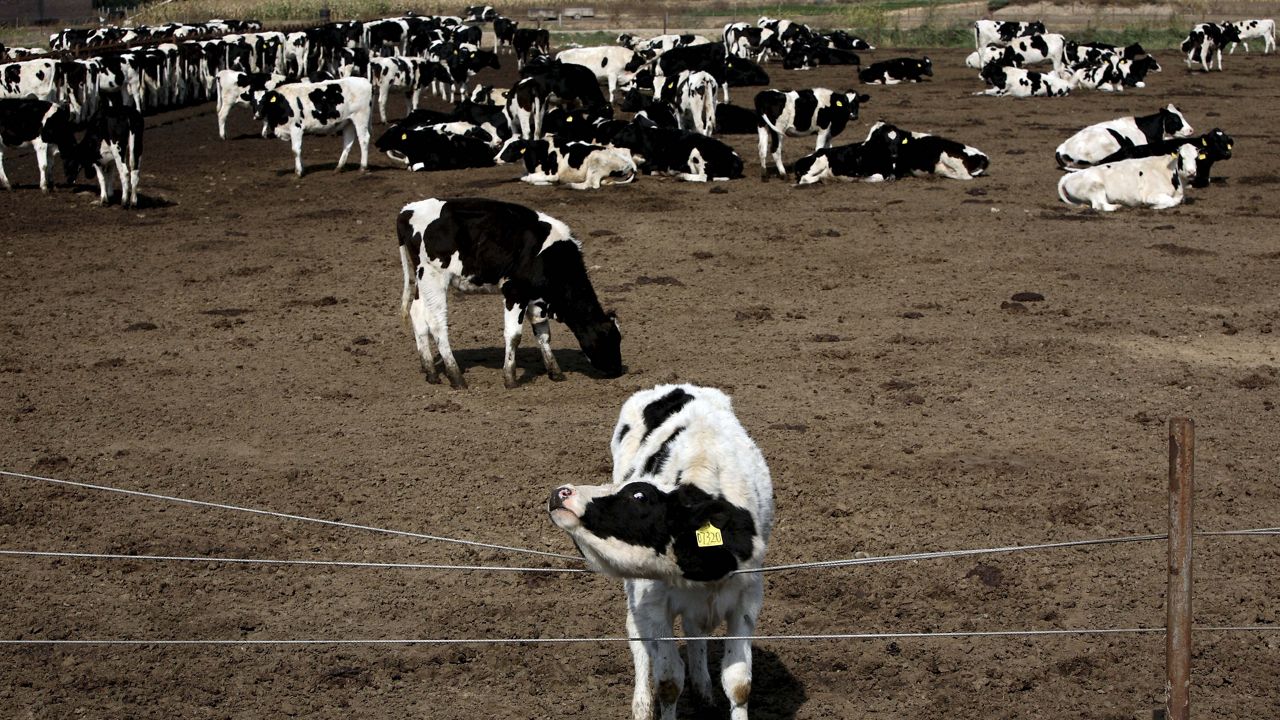A handful of international dairy conglomerates agreed to disclose their methane emissions as part of a new alliance launched Tuesday during the COP28 climate conference in Dubai.
The newly formed Dairy Methane Action Alliance is a coalition of French, Swiss and U.S. companies that includes Bel Group, Danone, General Mills, Kraft Heinz, Lactalis and Nestle as its founding members.
Thirty times more potent than carbon dioxide, methane is a powerful greenhouse gas that accounts for nearly 30% of global warming. Livestock operations alone are responsible for about 30% of the world’s methane emissions, according to the United Nations Food and Agriculture Organization.
A single cow's burps and manure produce as much as 264 pounds of methane gas annually, according to the U.S. Environmental Protection Agency. Globally, 270 million cattle are raised for milk production, generating about 46 billion pounds of methane each year.
“There’s not one silver bullet,” Danone vice president of government and public affairs Chris Adamo said during a press call to discuss the new alliance. “We have to look at this full spectrum of different options for farms across different geographies.”
Adamo said reducing methane emissions from dairy cows will require supporting farmers financially so they’re able to experiment with methane-reducing solutions, such as feed supplements.
Earlier this year, Danone said it would cut the methane emissions of its fresh milk operations 30% by 2030.
While the alliance does not require its members to reduce methane emissions, its members have pledged to measure and report them as a necessary first step.
The agreement comes on the heels of a significant expansion of the Subnational Methane Action Coalition during COP28, whereby 15 local governments pledged to reduce methane emissions from agriculture, energy and landfills. Led by California, the coalition also includes Colorado and parts of Brazil, Canada and india.
In California, which is the leading milk producer in the United States, the state’s Department of Food and Agriculture is already experimenting with renewable technologies such as dairy digesters that can use the methane from livestock manure to generate electricity and transportation fuel. California has set a goal of reducing methane emissions 40% by 2030 compared to 2013 levels.
According to the United Nations, reducing methane emissions caused by humans this decade by 45% can keep global warming from exceeding 2 degrees Celsius. More than 150 countries agreed to reduce global methane emissions by at least 30% below 2020 levels by 2030 as part of the Global Methane Pledge of 2021.


